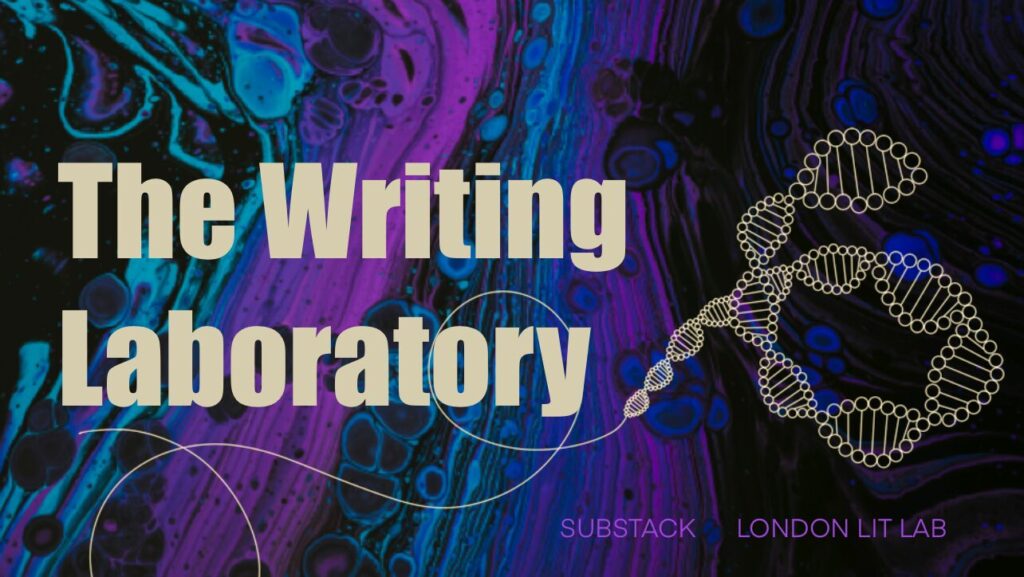We asked Katie Watson to tell us a bit about her Write Your Self methodology, which she will be teaching on her 8-week ‘Write Your Self Foundation Programme‘ in February 2023.
The methodology on your course is categorised as trauma-informed. Can you tell us a little about what that means and how you came to teach it?
I came across Write Your Self very organically. At the time, I was working for a local women’s centre which provided services for women leaving prison and for those who were at risk of becoming involved with the criminal justice system. I distinctly remember being struck by the ubiquity of trauma in the lives of the women that came to the centre. I started reading more widely about the impact of trauma and quickly became interested in Dr Stephanie Covington’s work – she had made tremendous shifts in the USA around implementing trauma-informed approaches to rehabilitation in women’s prison estates. I started to wonder if healing from trauma could be approached more creatively in our work with the women we saw coming through our doors. I chatted to a trusted colleague and friend about my ideas and, that same evening, she spotted a link to the Write Your Self website, where they were welcoming applications for fully-funded scholarships to train as a trauma-informed writing guide. I knew straight away this was completely the right opportunity for me, and that it was the right time.
As I understand it, the terms trauma-informed and trauma-sensitive mean that the programme is well informed, from both a clinical and educational perspective, about the prevalence of trauma in people’s lives and its ability to affect us physically, emotionally and spiritually. This knowledge is then infused into the programme on various levels, meaning it is designed and delivered in a way that actively avoids re-traumatising or triggering people as much as possible. It also means that the programme embeds and embodies, through its content, delivery and structure, the values and principles that are known to aid recovery from trauma such as safety, trust, agency, choice, invitational language and collaboration (to name a few).
You came to our attention through a piece you wrote for A Wild and Precious Life, could you tell us a little about your relationship to writing and recovery?
Writing has become as essential as eating and breathing to me! It has served, and continues to serve, a fundamental role in my own recovery. I believe with my whole heart in the power of writing. For me it’s been a life-affirming and life-saving tool. Whilst I am a published writer, I write predominantly for my own eyes – publication is simply a wonderful bonus. When I deliver the programme, I make it clear from the offset that if you’re interested in writing solely for publication, you might be a bit disappointed! In the same way, the programme is not about scrutinising the quality of a written piece but rather, acknowledging a voice having its expression through words and how it feels to be writing about a particular topic. Writing to heal, in my opinion, requires a shift in focus and a renegotiation of our relationship to the writing process.
Writing for healing or therapeutic purposes can also remind us that we are not stuck, that we can be agents of change, that other perspectives and feelings are possible. For example, I’ve recently been working though a series of connected memories from my early life that hold a lot of shame for me. Instead of writing them out exactly as they happened as autobiographical pieces, I am writing them as a set of poems. As I’ve been writing them, I have felt a natural urge to recreate and fictionalise different parts of the memories, not to necessarily make them seem more interesting or to hide the full story from view, but to reimagine my relationship to these memories. I turn them inside out. I rewrite them – not to pretend, but to transform. One reason I love poetry is because it’s a short-lived piece of work, it’s very ephemeral writing. It invites you to drill down into a single, significant moment or feeling because you have to make every word count. It helps me get to the heart of something I want to say very quickly. If you have a history of being ignored or spoken over, the act of saying precisely what you want to say can hold enormous power.
How do you balance your writing and your teaching, with your role as a psychotherapist?
To be completely truthful, I don’t always manage to get that balance. No one’s perfect. For me, it’s a balancing act that’s ongoing. Sometimes my teaching and therapy work have to come first and my own writing practice slides miserably down my list of priorities. However, I’m quicker to spot when this is happening and I will make time to recalibrate. Ultimately, I think it comes down to how much importance you want to assign to the things you do. I love my writing, teaching and therapy work in equal measure, so it’s up to me to find a way to ensure each of them is given adequate time and attention, regardless of the fact that there are bills to be paid.
Do you think being a writer yourself helps with your teaching? What do you bring of your writing self to your teaching?
This is a great question.
In short, I bring my whole writing self. For me, there is no other way to do it when I am guiding. During a group session, I will often write alongside my writers. I sometimes share my work aloud too, as co-participator. I show up, first and foremost, as a writer – not to make it about me, but to let the group know I am there with them, that I am willing to walk alongside them in their writing journey. I will also occasionally draw on my own experiences as a writer to help contextualise and bring elements of the content alive, but what I am careful not to do is to use language which suggests my way is right, that it is the only way to be a writer. I bring a lot of care to the way I position my own experiences when I’m guiding and facilitating. This approach is part of embodying trauma-informed principles in the way that I teach by avoiding coming across as dogmatic and emphasising a person’s right to choose for themselves. This is about sharing power, and creating a space where people know I am not the only voice in the room that matters.
Sometimes I get asked about the certification training I did with Write Your Self and whether it’s essential to complete the programme as a participant beforehand. I would absolutely recommend being guided through the process yourself first, both as part of a group as well independently. By the time I was certified, I had attempted several of the exercises many times. I believe it is crucial for any prospective guide to do this before and as they train – namely as a way of understanding how the methodology works first-hand, but also as a way of sharing power with the writers you intend to work with. Above all, it demonstrates your willingness to undertake that journey with them.
If people want to find out more about the methodology you use in your masterclass, where can they look?
For more information on the courses I deliver and my approach, you are welcome to look at my website and get in touch with me there. For more information about Write Your Self as an organisation and how they developed the original methodology, I have included a link to their website below. I have also attached a course brochure for the 8 week programme which includes answers to frequently asked questions.
Katie will be teaching 8-week online course with London Lit Lab 07Feb – 27Mar 2024, 7-9pm (UK Time), book your ticket here.


